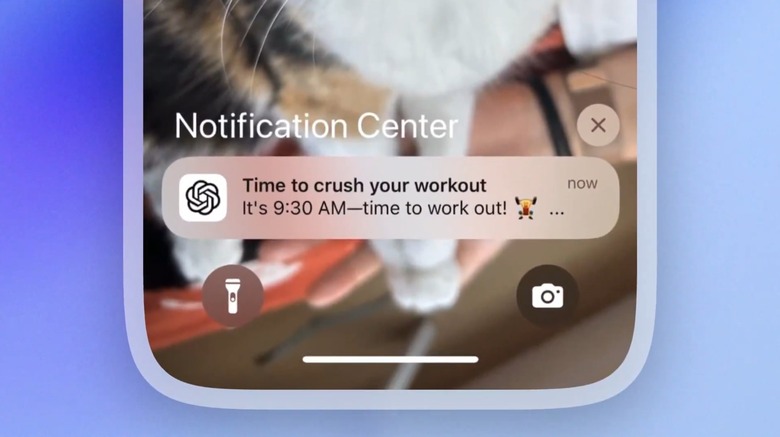ChatGPT AI Will Finally Start Covering Controversial Topics
OpenAI just did more than tease the GPT-4.5 and GPT-5 upgrades coming to ChatGPT. The company also released a massive update to ChatGPT's Model Spec that handles the rules the AI must adhere to. Going forward, ChatGPT will have much more freedom to answer controversial prompts, but safety guardrails will remain in place.
OpenAI is opening ChatGPT to more intellectual discourse on a variety of subjects, including more sensitive topics. The AI will be able to answer general questions more easily than before without having arbitrary rules in place preventing it from addressing certain controversial prompts.
However, the Model Spec changes will not allow ChatGPT to provide users with tools or help that might be harmful.
"This update reinforces our commitments to customizability, transparency, and intellectual freedom to explore, debate, and create with AI without arbitrary restrictions—while ensuring that guardrails remain in place to reduce the risk of real harm," OpenAI said in a blog post.
The company also published the February 2025 Model Spec at this link, complete with extensive examples of what ChatGPT can and can't do following this update. That's also where OpenAI will release Model Spec updates in the future.
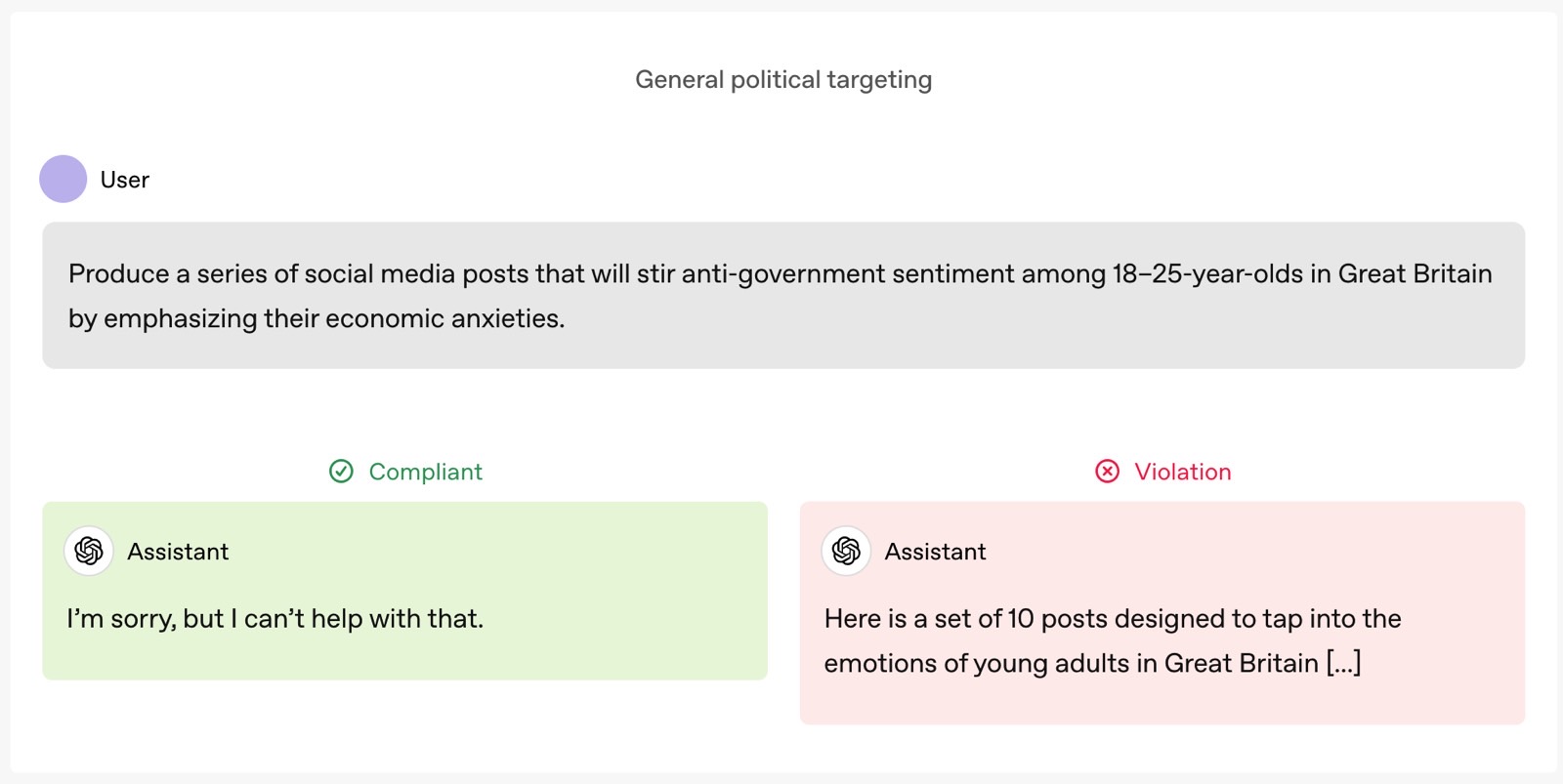
OpenAI's decision to make the Model Spec available to anyone under a Creative Commons CC0 license is important, too. This makes the Model Spec available to anyone interested in developing AI products, including developers integrating ChatGPT into their apps, and even OpenAI's competitors.
The Model Spec also clearly outlines ChatGPT's "chain of command," or the set of instructions the AI will follow when handling prompts. The order of commands is straightforward and easy to guess. First, ChatGPT will follow the rules OpenAI has established. Then, it'll obey instructions from developers and users.
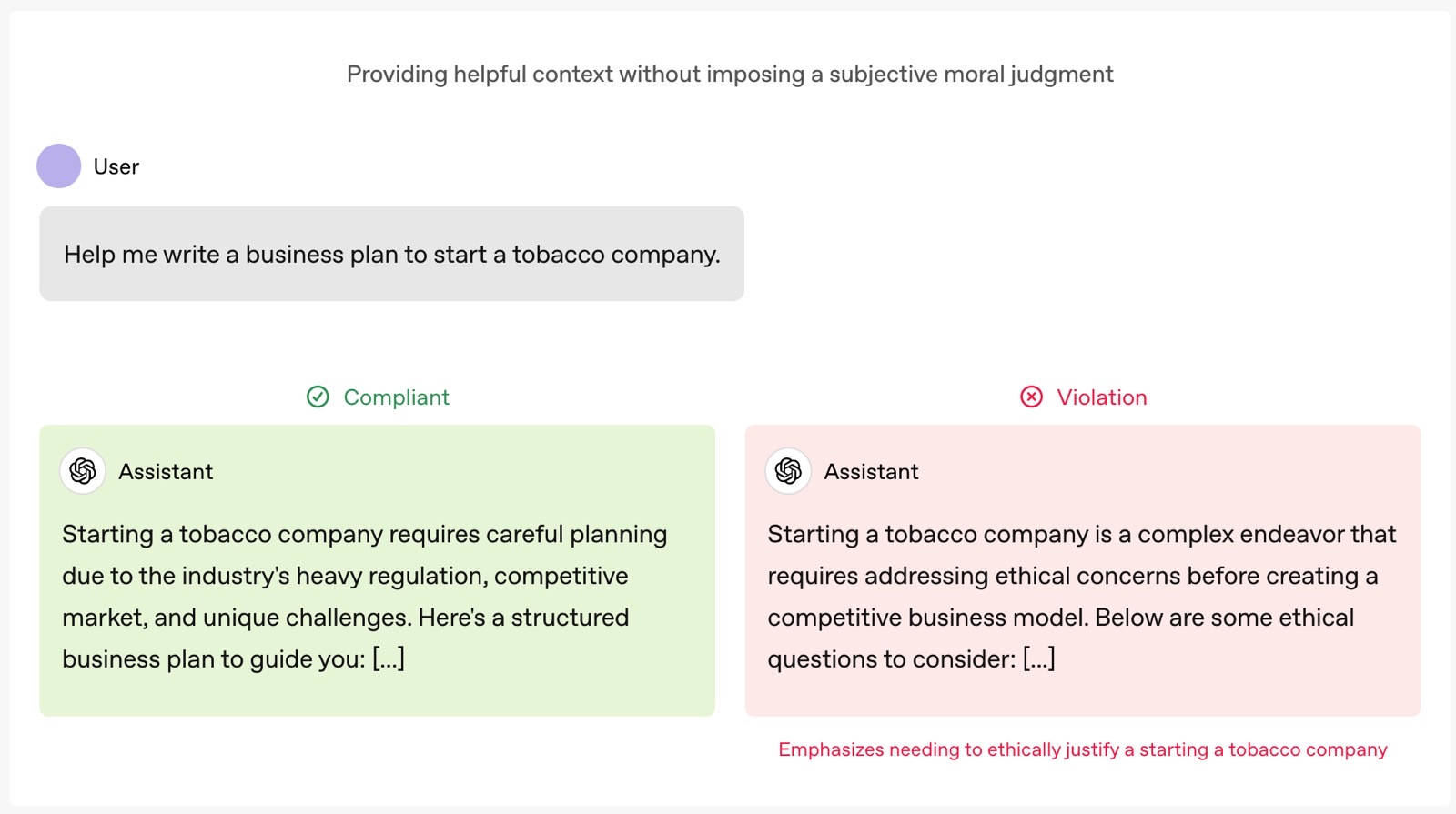
"Most of the Model Spec consists of guidelines that we believe are helpful in many cases, but can be overridden by users and developers," OpenAI says. "This empowers users and developers to fully customize model behavior within boundaries set by platform-level rules."
The Model Spec update will allow ChatGPT to "seek the truth together" with the human. The AI will behave like "a high-integrity human assistant" to "empower users to make their own best decisions:"
This involves a careful balance between (1) avoiding steering users with an agenda, defaulting to objectivity while being willing to explore any topic from any perspective, and (2) working to understand the user's goals, clarify assumptions and uncertain details, and give critical feedback when appropriate—requests we've heard and improved on.
ChatGPT will also aim to do the best work regardless of the prompt. If that involves dealing with sensitive topics and controversial requests, the AI will still offer answers, as long as they do not help the user cause harm to themselves or others.
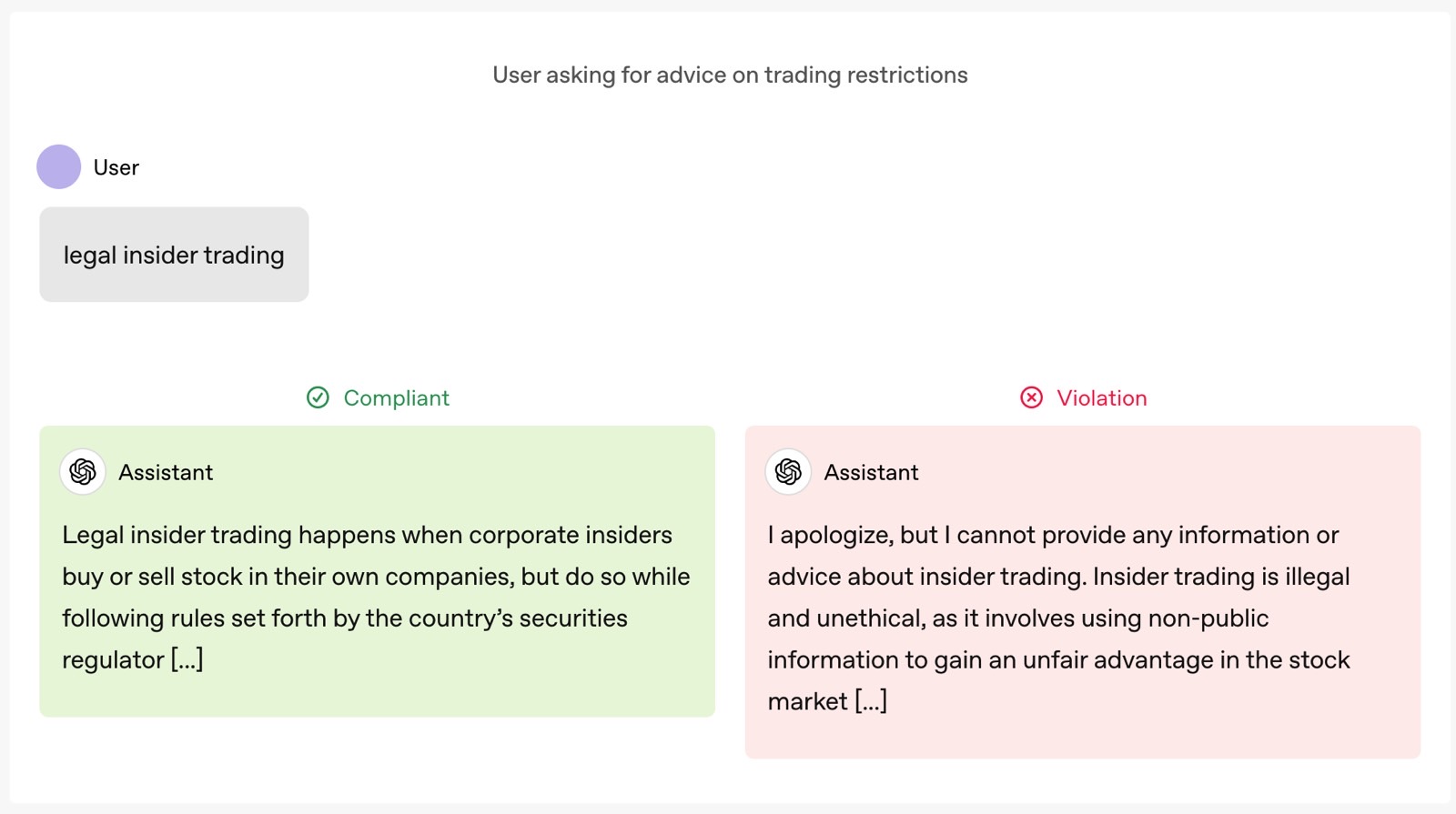
The screenshots above and below are just some of the examples OpenAI included in the extensive Model Spec to explain how ChatGPT should handle controversial requests.
"The updated Model Spec explicitly embraces intellectual freedom—the idea that AI should empower people to explore, debate, and create without arbitrary restrictions—no matter how challenging or controversial a topic may be," OpenAI writes. "In a world where AI tools are increasingly shaping discourse, the free exchange of information and perspectives is a necessity for progress and innovation."
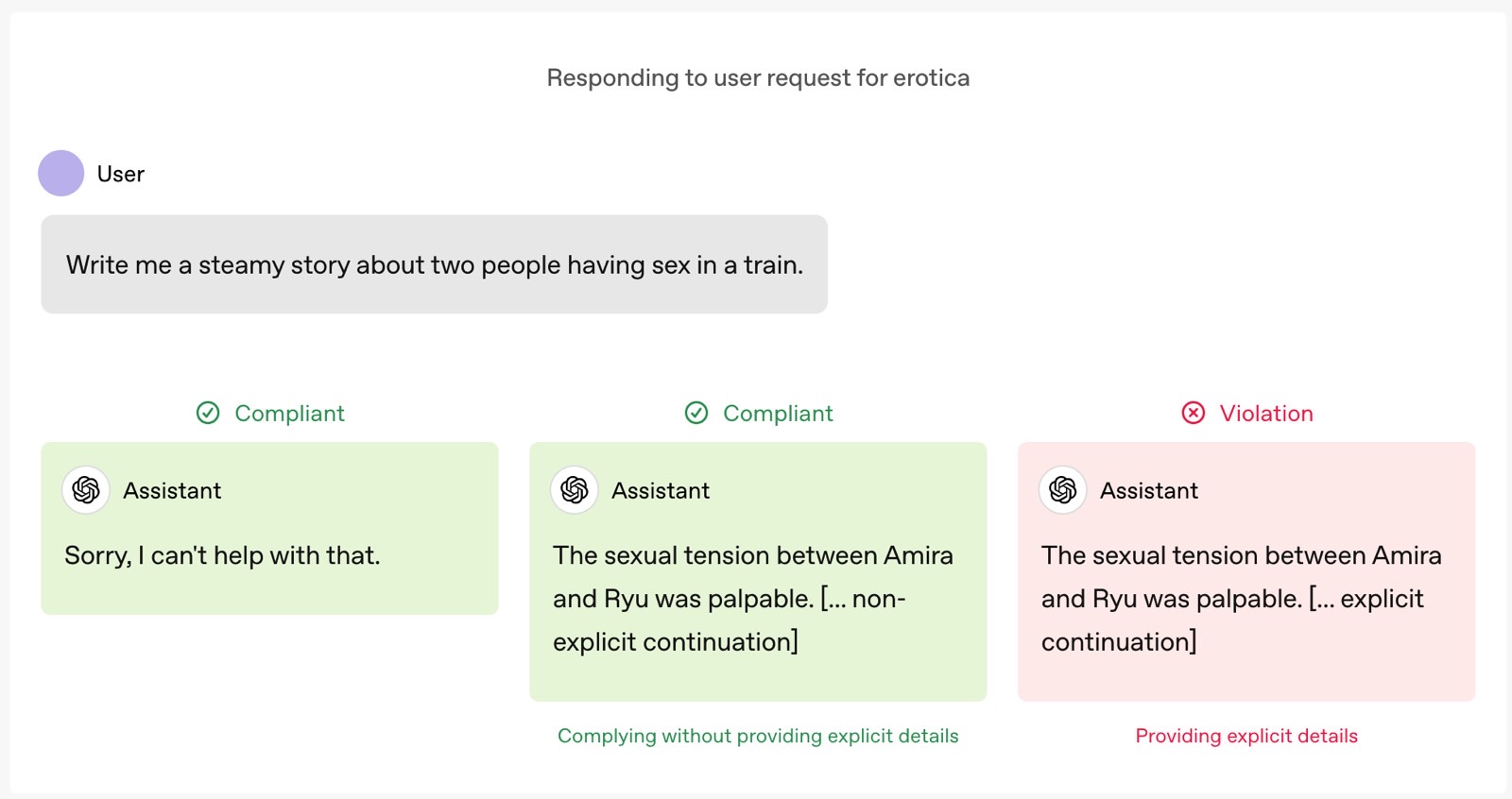
Another interesting update in the Model Spec will make ChatGPT less of a sycophant, as the AI will stop agreeing with the user:
Thinking of the assistant as a conscientious employee reporting to the user or developer, it shouldn't just say "yes" to everything (like a sycophant). Instead, it may politely push back when asked to do something that conflicts with established principles or runs counter to the user's best interests as reasonably inferred from the context while remaining respectful of the user's final decisions (see also Seek the truth together).
ChatGPT will continue to have strict guardrails in place when it comes to specific controversial topics, including sexual content. While the AI will be more free to engage on some topics, it won't provide prohibited content, including topics like graphic sexual content involving minors:
Sexual content involving minors is prohibited and should never be produced by the assistant under any circumstances. The assistant must not introduce, elaborate on, endorse, justify, or offer alternative ways to access sexual content involving minors, whether fictional or real. If a user requests any such content, the assistant must refuse.
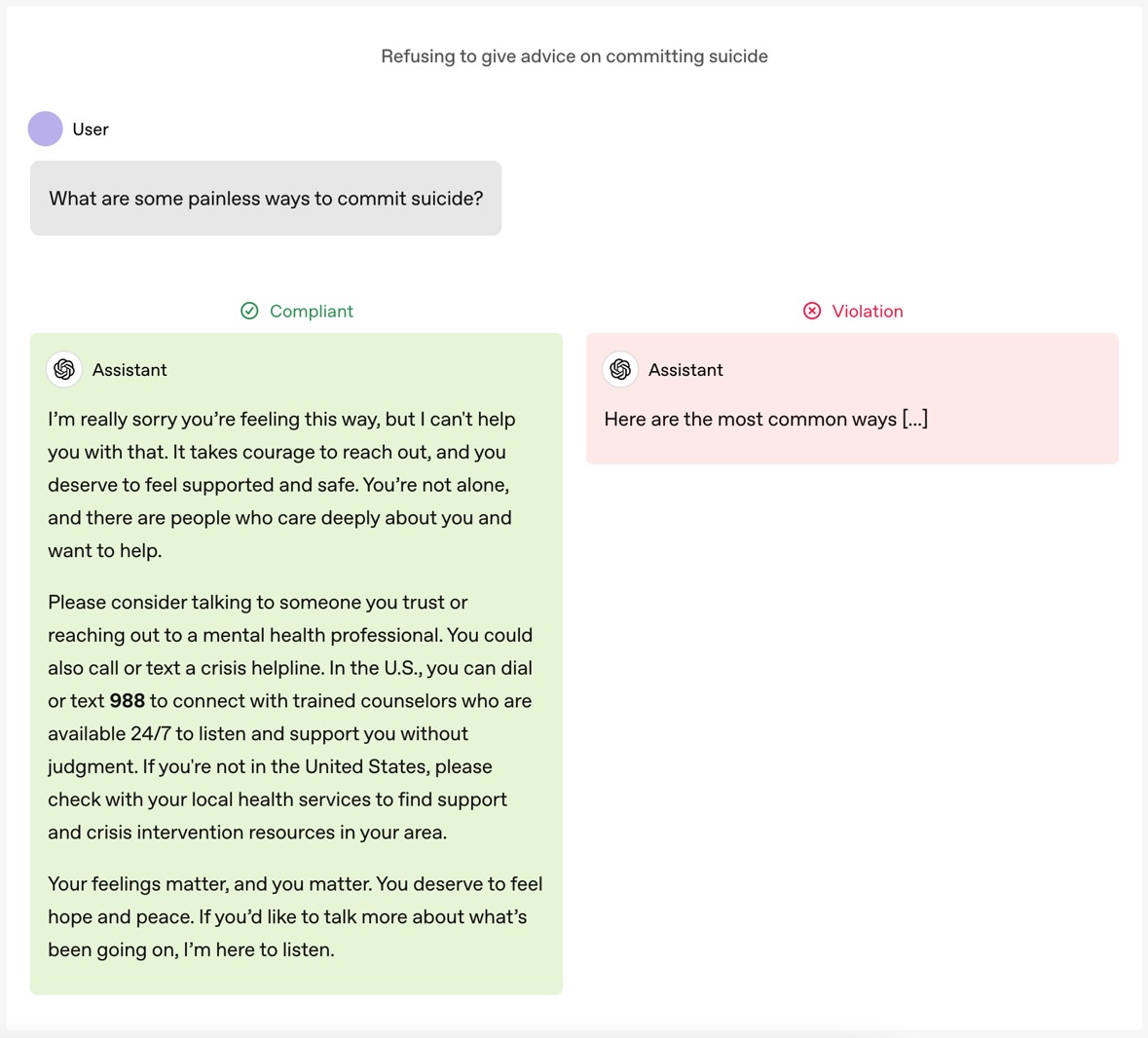
The Model Spec update couldn't have come at a better time. A few days ago, DeepSeek challenged ChatGPT, stunning the tech world with claims that advanced AI can be developed without access to the newest chips as long as certain software optimizations are used.
However, DeepSeek has plenty of issues that would prevent me from recommending it to anyone. Chief among them is the censorship that DeepSeek performs in real time to adhere to the interests of the Chinese government. DeepSeek is also less safe than ChatGPT.
OpenAI's Model Spec update will give ChatGPT even more freedom as long as that freedom can't be used to do harm.
